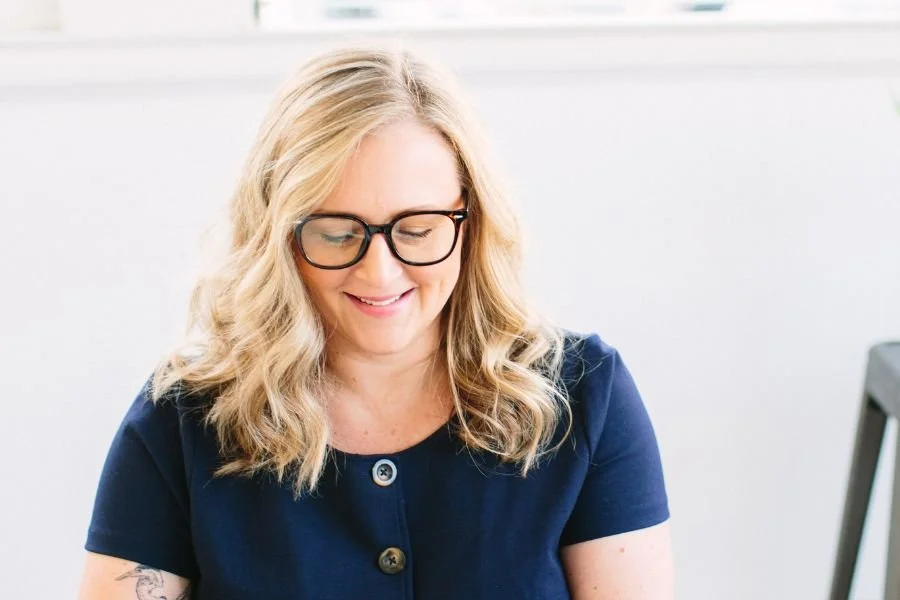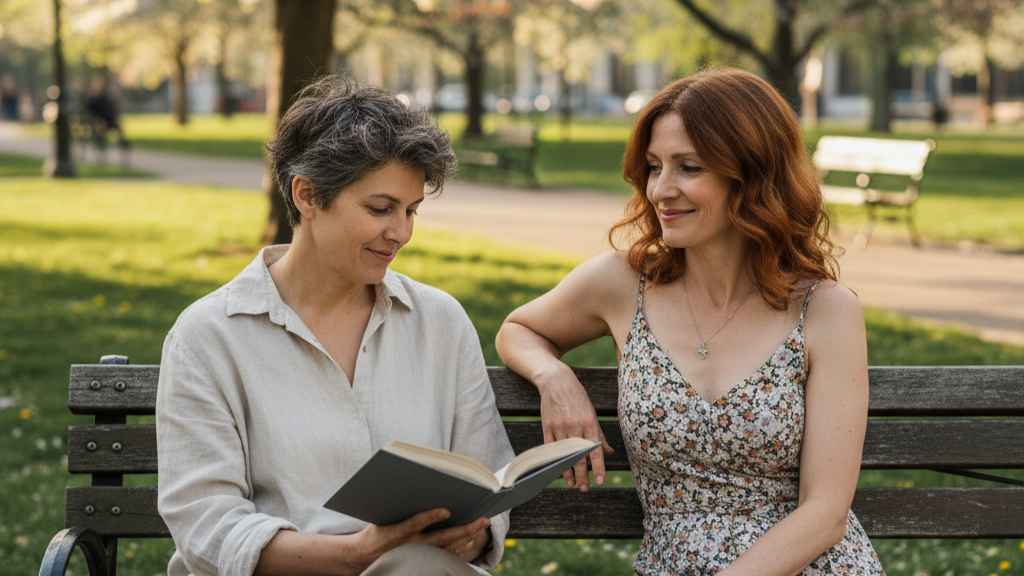The One Thing That Kept Me From Getting Depressed During the Hardest Times
The One Thing That Kept Me From Getting Depressed During the Hardest Times
I used to think that the worst part of any crisis was the crisis itself. Then I got Crohn’s disease and realized the real monster was the uncertainty. The what-ifs could’ve swallowed me whole: What if I couldn’t work? What if my friends drifted away? What if my whole life unraveled like my health had? I had plenty of fear, sadness, and anxiety knocking at the door — but I never let them move in. The reason wasn’t luck or denial. It was one thing, and one thing only: I trusted myself.
When I got Crohn’s disease, I was terrified. Terrified in the everything feels like it might collapse at any moment kind of way.
I worried about work: what if I couldn’t do it anymore? Would all my grad school, training, and years of experience just get flushed down the tubes? (No pun intended.) I worried about friendships: would I become “sick Emily,” no longer interesting, maybe even a burden? I worried about money, about never feeling stable in my own body again, about losing the life I’d built. Everything felt fragile. My whole life felt like my body felt: unpredictable, temperamental, and occasionally just… rude.
And this wasn’t my first major life challenge. I’d been through plenty before. But this one was different in one important way: I didn’t get depressed.
I’m Not Immune to Depression
Let’s get something straight: I am not one of those magical people who just doesn’t get depressed. I’ve been there. I know what it’s like to feel the slow creep of darkness: the way anxiety can slink in first, how self-criticism starts to sharpen, how your world starts to get smaller and smaller until you’re basically living inside your own head. I’ve lost hope, gone numb, stepped out of life. I’ve done the whole “Netflix-and-numbness” thing.
So when I say I didn’t get depressed during this time, it’s not because I’m special or immune. It’s because I had something I didn’t have in earlier storms: radical self-trust.
What I Didn’t Do
I didn’t slap a smiley face on my situation and chant affirmations I didn’t believe.
I didn’t try to spin it into some cosmic “everything happens for a reason” nonsense.
I didn’t shove down my feelings, because I know they have a way of resurfacing later with bigger teeth.
Instead, I decided to trust myself in a way I never had before.
Radical Self-Trust (a.k.a. My Superpower)
For me, self-trust means knowing, without question, that I will show up for myself, no matter what. It means I don’t have to control the future to feel okay in the present. It means I can let life be unpredictable without letting it knock me completely out of my own life.
Self-trust didn’t get rid of the fear or the anxiety or the frustration — but it made them manageable. It was the difference between feeling anxious and being consumed by anxiety. It was the difference between a bad day and a bad spiral.
How I Built It
Non-Attachment
At some point, I had to accept that I wasn’t in control of most things, especially not my health. My job wasn’t to wrestle life into submission; it was to decide how I was going to respond. And when anxiety wanted to jump in and run the show, non-attachment helped me notice it without handing it the keys.
Self-Respect
It’s really hard to trust someone you don’t respect, even if that “someone” is you. I started talking to myself with more patience and less criticism. I didn’t have to like what was happening, but I could still like myself while it was happening.
Self-Compassion
Self-trust thrives when you meet your own suffering with understanding instead of judgment. I gave myself permission to feel awful sometimes without deciding that meant I was failing. Fear, sadness, anxiety, they were just part of the ride.
Nervous System Expansion
I stopped treating discomfort like a poisonous snake and started treating it like weight training. Every hard conversation with a doctor, every unexpected symptom, every annoying phone call to insurance — they were all reps that made me stronger. The more I proved to myself that I could handle, the more I trusted myself to handle whatever was next.
Discernment
Self-trust means knowing which thoughts are worth listening to and which are just noise. Was that fear in my chest telling me something I could act on… or was it just my brain rehearsing for the apocalypse? Learning to tell the difference saved me a lot of unnecessary spirals.
Reality Acceptance
This was the one that kept me from exhausting myself. I could spend all my energy resisting what was happening — or I could accept that this was my starting point today. Acceptance didn’t mean I liked it; it meant I wasn’t going to burn out fighting reality.
How It All Worked Together
Each of these skills fed into the others. Non-attachment helped me stop obsessing about control. Self-respect and compassion gave me the emotional safety to face discomfort without shutting down. Discernment and acceptance helped me put my energy where it mattered. And all of it, together, kept me engaged in my own life, even when it was hard.
The Bottom Line
Self-trust doesn’t mean you never feel anxious or afraid. It means you know those feelings won’t take you out of the game. You trust that you’ll be there for yourself, even when life is messy and unfair and uncertain.
If I could give you one place to start, it would be this: find a small, doable way to show yourself you’ll have your own back today. Then do it again tomorrow. The more you keep that promise, the more you’ll trust yourself, and the steadier you’ll feel, no matter what’s coming.
Ready to Start Therapy?
Burnout, overwhelm, or people-pleasing? Learn about support for burnout and boundaries here or explore my focused three-hour intensive here.
Questioning your direction or identity in midlife? Read about therapy for midlife transitions and finding meaning here.
Wanting healthier, more grounded relationships? Explore my approach to relationship therapy for women here.
Exploring how these themes resonate in your own life? Therapy can be a place to unpack, find clarity, and move forward in a way that feels true to you. If you’re interested in seeing how we might work together, please review my specializations in the “Specializations” menu at the top of the page. I provide therapy to women in Bainbridge Island and across Washington State.





